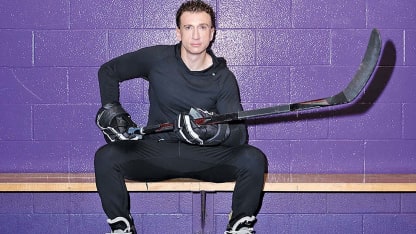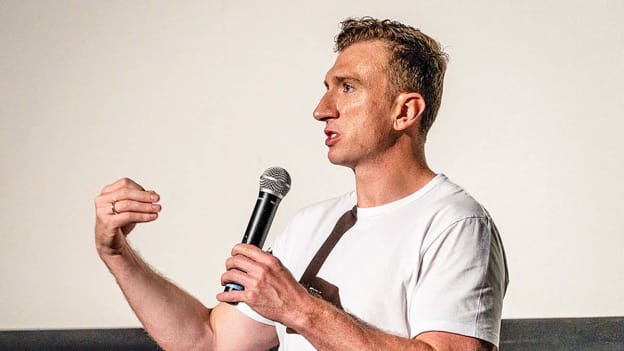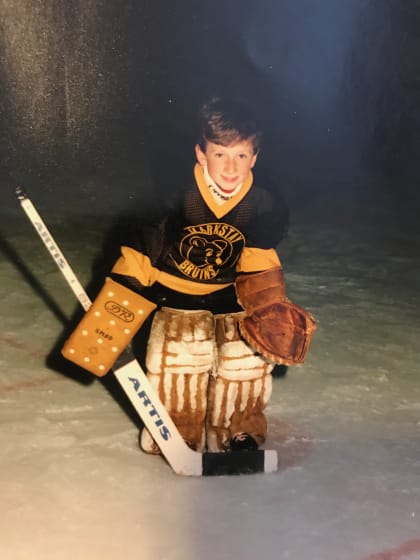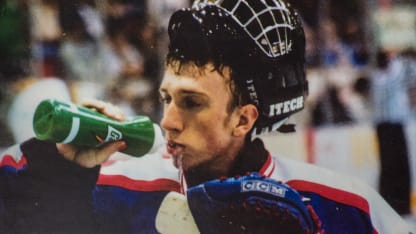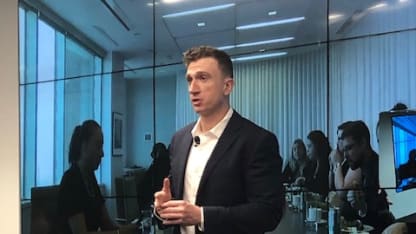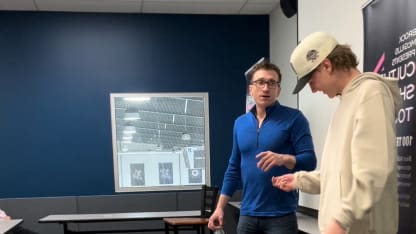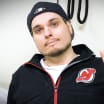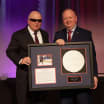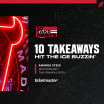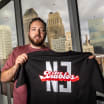This was originally published on June 20, 2025.
The first thing you should know about Brock McGillis is that he can probably out-bench you. He certainly could back in his heyday anyway, when he was out-maxing many of the hockey athletes he was training in the early to mid 2010s.
“I’m 41 (years old) now and I train more for functionality and aesthetic than ego,” he said. “But back then, I was doing over 315 for reps. Not bad for a goalie.”
The second thing you should know about Brock McGillis is that he is the first openly gay professional hockey player and an active advocate for LGBTQ+ rights and acceptance.
Since retiring from the sport, he has begun a career in public speaking, focusing on topics such as mental health awareness, breaking down barriers and promoting inclusion in sports and other areas of life.
McGillis has traveled all across the North America engaging with various corporations, organizations, events, schools and sports team to talk and help foster an inclusive culture and environment. And he’s learned some things along the way.
“After nine years of doing this, I’ve realized a few things,” he said. “The most important thing I’ve realized is that each and every one (of us) has the ability to create a shift. Each and every one (of us) has the ability to make the world this much better.”
While much has changed in the past decade as far as inclusion in the sport, there is still a long way to go, particularly in the locker room.
“To me, we are making progress,” McGillis said. “I think we do a lot of lovely things for fans and that type of culture. But we don’t do enough to humanize, engage and educate players, coaches, etc. and foster environments where everyone can be themselves in the locker room.”
As an aside, McGillis pointed out that 25 percent of Gen Z identifies somewhere in the LGBTQ+ community. Yet, there are zero NHL players that are out currently in the League despite nearly half the players falling into that category.
“Simple math,” he noted.
And the reason those players aren’t coming out and being themselves is due to the locker room culture that persists. So, they hide their true selves and conform. And as a result, their mental health suffers.
“I’ve had over 50 hockey players, elite hockey players at all levels, since the start of this calendar year tell me that they tried to die by suicide this year,” McGillis continued. “They’re hiding that. They’re suffering.”
Changing that cultural mindset is part of McGillis’ goal. It’s why he’s dedicated his life to activism. It’s why he launched a speaking tour to talk to anyone who will listen to his message. It’s why he visited over 150 teams in Canada and over 70 in the United States in under two months as part of the Shiftmakers Tour, bringing his message of inclusivity to every corner of North America.
“People want this. The people in the locker rooms want it. Players love it. Coaches like it,” McGillis said. “A shift in this space has to come so that people can be themselves.”
McGillis had to grow into his voice as a public speaker and advocate. And it was a long and winding path. But it is a path that has made him who he is today.

